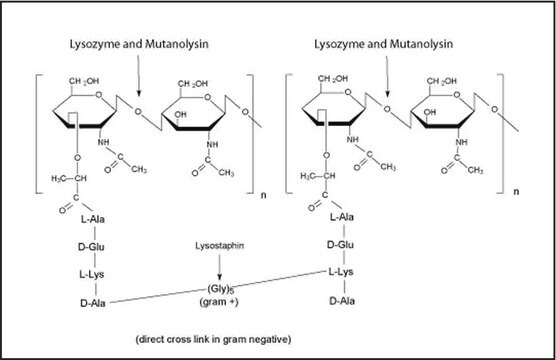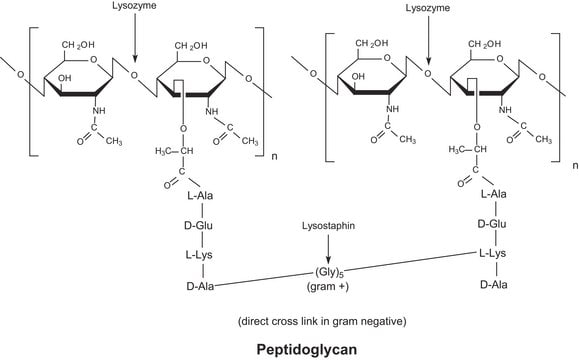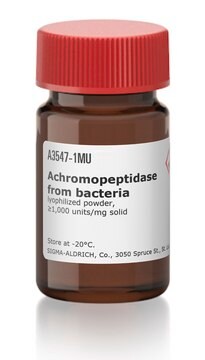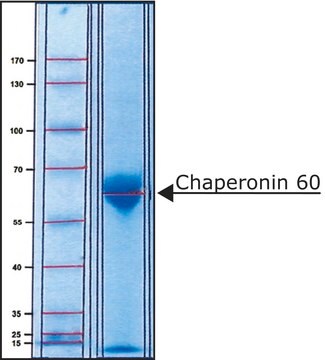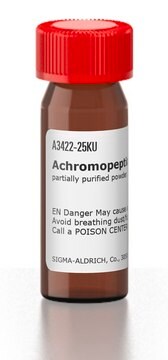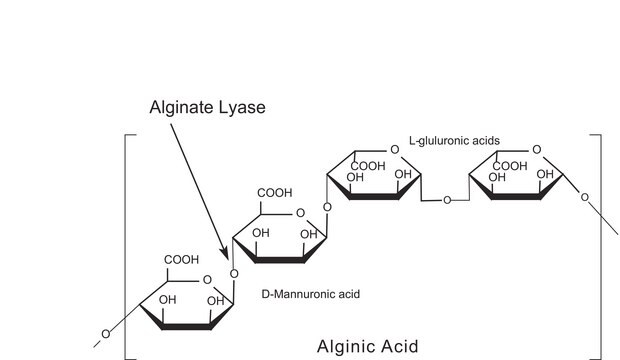L9043
Lysostaphin from Staphylococcus simulans
recombinant, expressed in E. coli, lyophilized powder
Sinónimos:
Glycyl-glycine Endopeptidase
About This Item
Productos recomendados
biological source
bacterial
recombinant
expressed in E. coli
assay
≥90% (HPLC)
form
lyophilized powder
specific activity
≥3000 unit/mg solid
technique(s)
molecular cloning: suitable
suitability
suitable for sequence analysis test
application(s)
life science and biopharma
shipped in
dry ice
storage temp.
−20°C
¿Está buscando productos similares? Visita Guía de comparación de productos
General description
Application
Biochem/physiol Actions
signalword
Danger
hcodes
pcodes
Hazard Classifications
Resp. Sens. 1
Storage Class
11 - Combustible Solids
wgk_germany
WGK 3
flash_point_f
Not applicable
flash_point_c
Not applicable
ppe
Eyeshields, Gloves, type N95 (US)
Elija entre una de las versiones más recientes:
¿Ya tiene este producto?
Encuentre la documentación para los productos que ha comprado recientemente en la Biblioteca de documentos.
Los clientes también vieron
Nuestro equipo de científicos tiene experiencia en todas las áreas de investigación: Ciencias de la vida, Ciencia de los materiales, Síntesis química, Cromatografía, Analítica y muchas otras.
Póngase en contacto con el Servicio técnico


